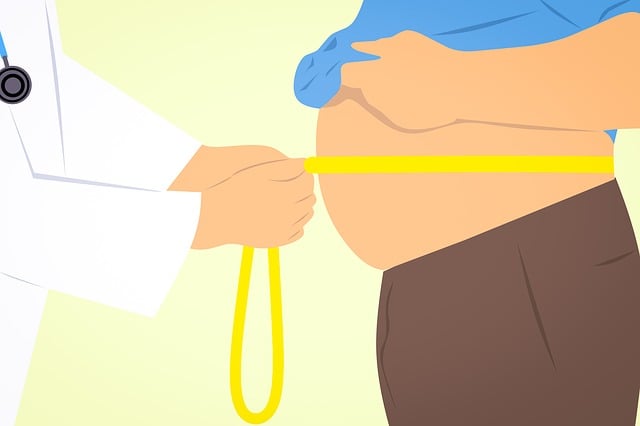TL;DR:
Medical supervision through doctor-supervised weight loss programs is crucial for long-term post-weight loss maintenance. These programs offer personalized strategies, expert knowledge, and resources to address the holistic nature of sustainable weight management. Key benefits include accountability, education on nutrition & lifestyle, prompt addressing of health concerns, and tailored adjustments based on regular check-ins. Selecting experienced specialists ensures effective maintenance strategies, fostering motivation and adherence while prioritizing overall health and safety. Regular follow-ups are vital for tracking progress, customizing plans, and enhancing long-term success rates.
Maintaining weight loss is often more challenging than achieving it, highlighting the crucial role of medical supervision. This article explores how doctor-supervised weight loss programs can be transformative, offering tailored strategies for long-term success. We delve into the benefits, key components, and selection of the right physician, providing insights on integrating supervision into daily life and overcoming obstacles. Additionally, we discuss measuring progress and adjusting plans with expert guidance, emphasizing the value of these programs in sustaining healthy lifestyle changes.
Understanding the Role of Medical Supervision in Weight Loss Maintenance

Medical supervision plays a pivotal role in post-weight loss maintenance, ensuring that individuals sustain their hard-earned results over time. Doctor-supervised weight loss programs are designed to provide ongoing support and guidance, addressing potential challenges and preventing relapse. Medical professionals offer personalized strategies, including dietary advice, exercise plans, and regular check-ins, tailored to each patient’s unique needs and health status.
These programs recognize that weight loss is just the beginning; maintenance requires a comprehensive approach. By involving doctors, individuals benefit from expert knowledge, evidence-based practices, and access to resources that promote long-term success. Medical supervision fosters accountability, motivation, and the development of sustainable habits, ultimately enhancing the likelihood of maintaining weight loss in the long run.
Benefits of Doctor-Supervised Weight Loss Programs

Doctor-supervised weight loss programs offer numerous benefits that are crucial for successful and sustainable post-weight loss maintenance. Firstly, professional guidance from a medical expert ensures safe and healthy losing methods, tailored to an individual’s unique needs and health status. This is especially important as rapid or extreme dieting can have detrimental effects on overall well-being.
These programs also facilitate better understanding of nutritional requirements and caloric intake, empowering individuals with knowledge that promotes long-term adherence to healthier lifestyles. Regular medical supervision provides a safety net for addressing any health concerns or side effects promptly, enhancing the likelihood of maintaining lost weight over time.
Components of Effective Medical Supervision for Long-Term Success

Medical supervision is a cornerstone for achieving and maintaining healthy weight loss outcomes, with doctor-supervised weight loss programs proving highly effective for long-term success. These programs typically involve regular check-ins with healthcare professionals who monitor not only physical changes but also psychological well-being, addressing the holistic nature of sustainable weight management. The components of effective medical supervision include comprehensive assessments, personalized treatment plans, ongoing support, and education on lifestyle modifications such as balanced nutrition and regular exercise.
Regular follow-up visits allow doctors to track progress, adjust strategies as needed, and provide encouragement. They also facilitate open communication about challenges, relapses, or side effects from weight loss interventions, enabling prompt addressing of issues that could impede long-term adherence. Moreover, educational sessions during medical supervision equip individuals with the knowledge and skills to make informed decisions regarding their health, fostering a sense of empowerment crucial for maintaining healthy habits over time.
Choosing the Right Doctor for Your Weight Loss Journey

Choosing the right doctor is a crucial step in any weight loss journey, especially for those focusing on maintenance after achieving their goal weight. Look for specialists who have experience and expertise in doctor-supervised weight loss programs. This could include internal medicine physicians, endocrinologists, or bariatric specialists. Ensure they understand your unique needs and goals, as maintenance is often a personalized process.
Consider doctors who offer ongoing support and regular check-ins to monitor your progress and address any challenges. A good doctor-patient relationship built on open communication will enhance your motivation and adherence to the maintenance plan. They should be able to provide guidance on lifestyle changes, nutrition, and exercise while also offering strategies to manage cravings and prevent relapse.
Integrating Medical Supervision into Your Lifestyle

Integrating medical supervision into your lifestyle is a significant step in maintaining healthy weight loss achievements. Doctor-supervised weight loss programs offer tailored guidance and support, ensuring you stay on track with your goals. Regular check-ins with healthcare professionals allow for continuous monitoring of your health metrics, including vital signs, body composition, and nutrition intake. This proactive approach not only helps prevent potential health risks associated with rapid weight loss but also enables adjustments to your plan based on individual needs and progress.
These programs often include comprehensive assessments that consider not just physical changes but also mental well-being and lifestyle factors. By addressing these interconnected elements, doctor-supervised weight loss maintains a holistic focus, fostering long-term success. This integration encourages sustainable habits, promotes better food choices, and increases physical activity levels, all while ensuring your overall health and safety remain paramount.
Common Challenges and How to Overcome Them with Medical Support

Maintaining a healthy weight after achieving significant loss can be challenging, with many individuals facing similar obstacles. One of the most common challenges is plateaus in weight loss and metabolism, where progress slows or stops despite consistent efforts. Medical supervision offers strategies to overcome these hurdles. Doctors can assess individual needs, adjust calorie intake goals, and provide guidance on nutrient timing and exercise routines tailored for continued fat burning.
Additionally, emotional eating and lack of support are frequent issues. Doctor-supervised weight loss programs often include counseling sessions or access to support groups, addressing psychological barriers to maintenance. Regular check-ins with healthcare providers ensure accountability, help stay motivated, and allow for adjustments in the program as needed, ultimately increasing the chances of long-term success.
Measuring Progress and Adjusting Your Plan with Medical Guidance

Medical supervision is an integral part of successful post-weight loss maintenance. After completing a structured doctor-supervised weight loss program, ongoing guidance from healthcare professionals is crucial to ensure long-term success. Regular check-ins with your doctor or dietitian allow for measuring progress, reviewing achievements, and identifying areas that need improvement.
Through these appointments, medical experts can help adjust your meal plan, exercise routine, and overall lifestyle strategies based on individual needs and changing circumstances. This personalized approach ensures that you stay on track, maintain the lost weight, and continuously improve your overall health and well-being.
